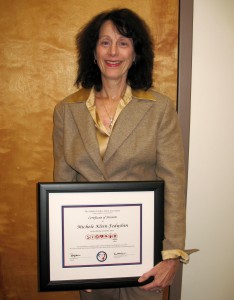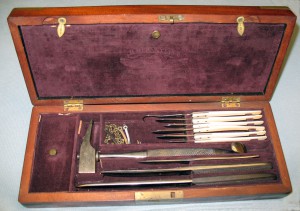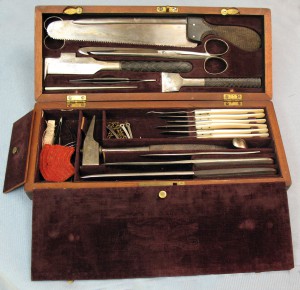HSLS offers classes on database searching, software applications such as Adobe Photoshop, bibliographic management, molecular biology and genetics, and library orientations. For more information visit the online course descriptions.
Classes are held on the first floor of Falk Library (200 Scaife Hall) in classroom 1 and conference room B, and on the second floor in the Computer and Media Center classroom 2. Some classes are also held in the conference room at UPMC Shadyside Libraries. All classes are open to faculty, staff and students of the schools of the health sciences at the University of Pittsburgh and UPMC.
No registration is required for any of these classes. Seating for classes is first-come, first-served, until the class is full. Classes marked with an asterisk (*) qualify for American Medical Association Category 2 continuing education credit.
Class schedules are subject to change. Please consult the online class calendar for the most current information.
HSLS ORIENTATION
Introduction to HSLS Resources and Services at Falk Library
(Meet inside entrance to Library)
Friday, January 21 1-2 p.m.
Offered upon request to groups or individuals. Call 412-648-8796.
Introduction to HSLS Services at UPMC Shadyside
Offered upon request to groups or individuals. Call 412-623-2415.
Finding Full-Text Articles at UPMC Shadyside
Offered upon request to groups or individuals. Call 412-623-2415.
SEARCHING DATABASES
PubMed Basics* (Falk Library Classroom 1)
Tuesday, January 18 10-11:30 a.m.
Tuesday, February 15 10-11:30 a.m.
Focus on Behavioral Medicine: Searching in PsycINFO* (Falk Library Classroom 1)
Tuesday, February 22 10:30 a.m.-noon
MOLECULAR BIOLOGY AND GENETICS RESOURCES
Genome Browsers* (Falk Library Classroom 2)
Wednesday, January 12 1-3 p.m.
Locating Gene/Protein Information* (Falk Library Classroom 2)
Wednesday, January 19 1-3 p.m.
SNPs & Genetic Variation* (Falk Library Classroom 2)
Wednesday, January 26 1-3 p.m.
Cancer Informatics* (Falk Library Classroom 2)
Wednesday, February 2 1-3 p.m.
Introduction to Vector NTI* (Falk Library Classroom 2)
Wednesday, February 9 1-3 p.m.
Pathway Analysis Tools 1* (Falk Library Classroom 2)
Wednesday, February 16 1-3 p.m.
Pathway Analysis Tools 2* (Falk Library Classroom 2)
Wednesday, February 23 1-3 p.m.
SOFTWARE TRAINING
EndNote Basics (Falk Library Classroom 2)
(Note: This class is usually full. Please arrive 15 minutes in advance to ensure seating.)
Tuesday, January 11 8:30-10:30 a.m. (UPMC Shadyside Libraries)
Thursday, January 13 10 a.m.-noon (Falk Library Classroom 2)
Wednesday, January 26 10 a.m.-noon (Falk Library Classroom 2)
Thursday, February 10 1-3 p.m. (Falk Library Classroom 2)
Tuesday, February 22 10 a.m.-noon (Falk Library Classroom 2)
Adobe Photoshop for Beginners (Falk Library Classroom 2)
Wednesday, January 12 9-11 a.m.
Thursday, February 10 9 -11 a.m.
PowerPoint for Beginners
Thursday, January 6 9-11 a.m (Falk Library Classroom 2)
Wednesday, January 26 9-11 a.m. (UPMC Shadyside Libraries)
Advanced PowerPoint for Presentations (Falk Library Classroom 2)
Thursday, February 3 9-11 a.m.
The WOW Factor: PowerPoint for Posters (Falk Library Classroom 2)
Wednesday, February 23 9-11 a.m.
Lunch With A Librarian
These informal, brown-bag lunches are held in Falk Library Conference Room B. Bring your own lunch. Drinks and dessert are provided. For more information visit the online descriptions.
Search Clinic
Monday, February 7 Noon-1 p.m.
Mobile MolBio: Apps for Scientists
Thursday, February 24 Noon-1 p.m.
Classes
Searching for Nursing Articles Using CINAHL (UPMC Shadyside Libraries)
Tuesday, February 15 11:30 a.m. – 12:30 p.m.
Thursday @ Three HSLS UPMC Shadyside Libraries Information Series
These informal sessions are held in the Conference Room at UPMC Shadyside Libraries.
Writing Integrity in the Digital Age
Thursday, January 27 3-4 p.m.
Advanced Google: Tips and Strategies for Getting More From Google
Thursday, February 24 3-4 p.m.
CUSTOMIZED CLASSES
Customized classes can be developed for your department, course, or other group.
LEARNING @ YOUR PACE
These online tutorials provide information on getting started at HSLS, focusing on the Web site and popular resources.
 Research shows that the survival rate for those suffering cardiac arrest outside the hospital is only 7%.1 HSLS reference librarian Michele Klein-Fedyshin, who earned her RN last year, used an automatic external defibrillator (AED), along with cardiopulmonary resuscitation (CPR), to assist in the rescue of a Pitt professor who suffered a cardiac arrest at the University Club gym on April 15, 2010. Klein-Fedyshin and Dave Nanz, the responding Pitt police officer, were awarded a certificate of recognition at the annual meeting of the Sudden Cardiac Arrest Association (SCAA) on October 8, 2010.
Research shows that the survival rate for those suffering cardiac arrest outside the hospital is only 7%.1 HSLS reference librarian Michele Klein-Fedyshin, who earned her RN last year, used an automatic external defibrillator (AED), along with cardiopulmonary resuscitation (CPR), to assist in the rescue of a Pitt professor who suffered a cardiac arrest at the University Club gym on April 15, 2010. Klein-Fedyshin and Dave Nanz, the responding Pitt police officer, were awarded a certificate of recognition at the annual meeting of the Sudden Cardiac Arrest Association (SCAA) on October 8, 2010.
 The instruments were produced by Hermann Hernstein & Son. There are three key factors that identify the set as belonging to the Civil War era: (1) the mark of H. Hernstein & Son, which was used from 1862 to 1865, when the company was selling directly to the military under contract; (2) Herstein & Son’s address from 1855 to 1867, 393 Broadway in New York City, is engraved on the instruments; and (3)
The instruments were produced by Hermann Hernstein & Son. There are three key factors that identify the set as belonging to the Civil War era: (1) the mark of H. Hernstein & Son, which was used from 1862 to 1865, when the company was selling directly to the military under contract; (2) Herstein & Son’s address from 1855 to 1867, 393 Broadway in New York City, is engraved on the instruments; and (3) the wooden case contains a single sliding latch not found on any civilian instrument sets of the period.
the wooden case contains a single sliding latch not found on any civilian instrument sets of the period.